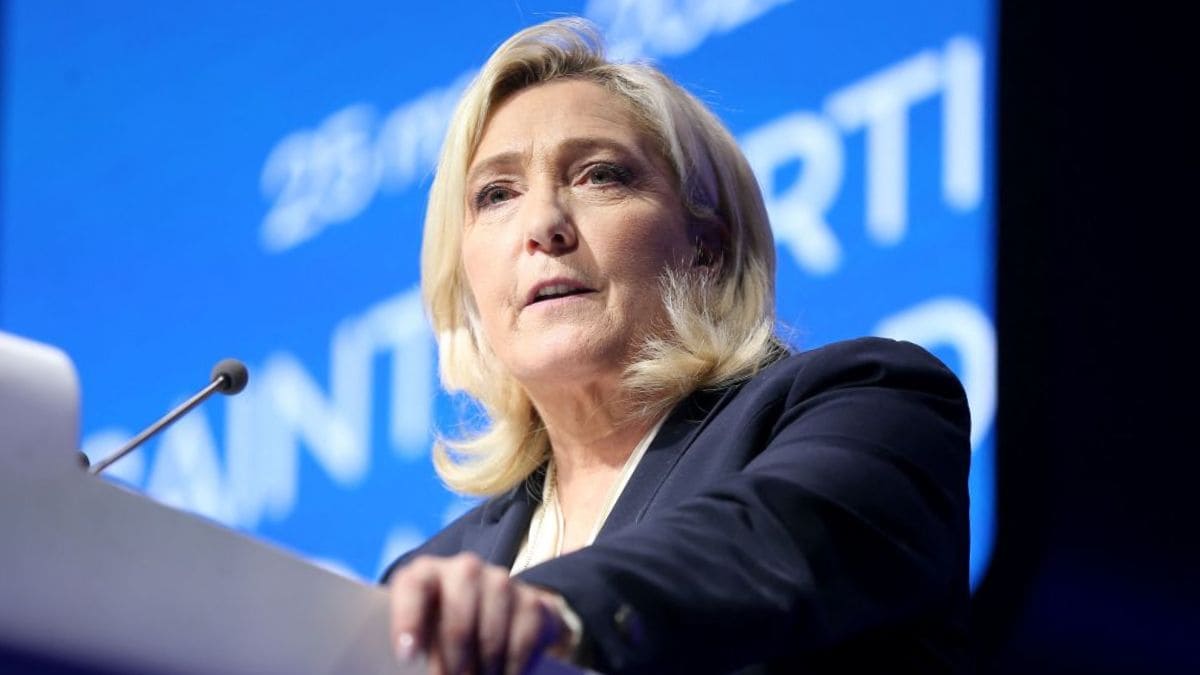French far-right leader Marine Le Pen was banned by a French court from holding public office for the next five years. The verdict quickly drew criticism from Le Pen’s allies at home and abroadread more
Prominent far-right and nationalist leaders from across Europe and beyond voiced support for Marine Le Pen on Monday (March 31) after a French court handed the far-right politician a four-year prison sentence– half of it suspended– and a five-year ban from holding public office over a long-running embezzlement case.
The ruling effectively bars Le Pen, 56, from standing in
France’s 2027 presidential election, a contest she had been widely expected to enter. Her lawyer has said she will appeal the conviction.
Le Pen, a three-time presidential candidate and one of France’s most recognisable political figures, was
found guilty of misusing European Parliament funds by employing staff members under the guise of parliamentary aides while they were in fact working for her National Rally (RN) party.
The verdict quickly drew criticism from Le Pen’s allies at home and abroad.
International support pours in
Hungarian Prime Minister Viktor Orbán expressed his support by posting “Je suis Marine!” (it translates to “I am Marine”) in French on X, echoing the slogan “Je suis Charlie” used in solidarity with the victims of the 2015 Charlie Hebdo terror attack in Paris.
In Moscow, Kremlin spokesperson Dmitry Peskov said the case reinforced Russia’s long-held view that “more and more European capitals are going down the path of violating democratic norms”.
Other European far-right figures joined the chorus of support. Jordan Bardella, president of the National Rally and Le Pen’s political protégé, called the ruling “unjust” and claimed that “French democracy is being executed.”
Dutch far-right leader Geert Wilders said on social media that he was “shocked by the incredibly tough verdict”, voicing full confidence in Le Pen and expressing hope she would overturn the ruling on appeal and “become President of France”.
Spain’s Vox party leader Santiago Abascal, who hosted Le Pen and other nationalist figures at a summit in Madrid earlier this year, also denounced the ruling, writing: “They will never succeed to silence the voice of the French people.”
A widening battle for the far-right
The fallout from Le Pen’s sentencing adds to a growing narrative among nationalist leaders who argue that legal and electoral institutions are being weaponised to curb their political rise.
Milorad Dodik, the Bosnian Serb leader recently convicted for defying the international envoy overseeing the Dayton peace agreement, compared Le Pen’s case to his own, claiming: “The verdict was not about the law — it was about politics.”
Italy’s Deputy Prime Minister Matteo Salvini also weighed in, calling the court’s decision “a declaration of war by Brussels” and warning that such judicial action was becoming a pattern across the continent.
“A bad film that we are also seeing in other countries like Romania,” Salvini wrote, referring to the controversial disqualification of Romanian far-right politician Călin Georgescu. The country’s electoral bureau blocked Georgescu from running in a presidential re-run earlier this year after a court annulled his first-round victory amid allegations of Russian interference and an orchestrated online campaign.
Georgescu has denied any ties to Moscow and called the disqualification “a direct blow to the heart of democracy.”
With inputs from agencies
